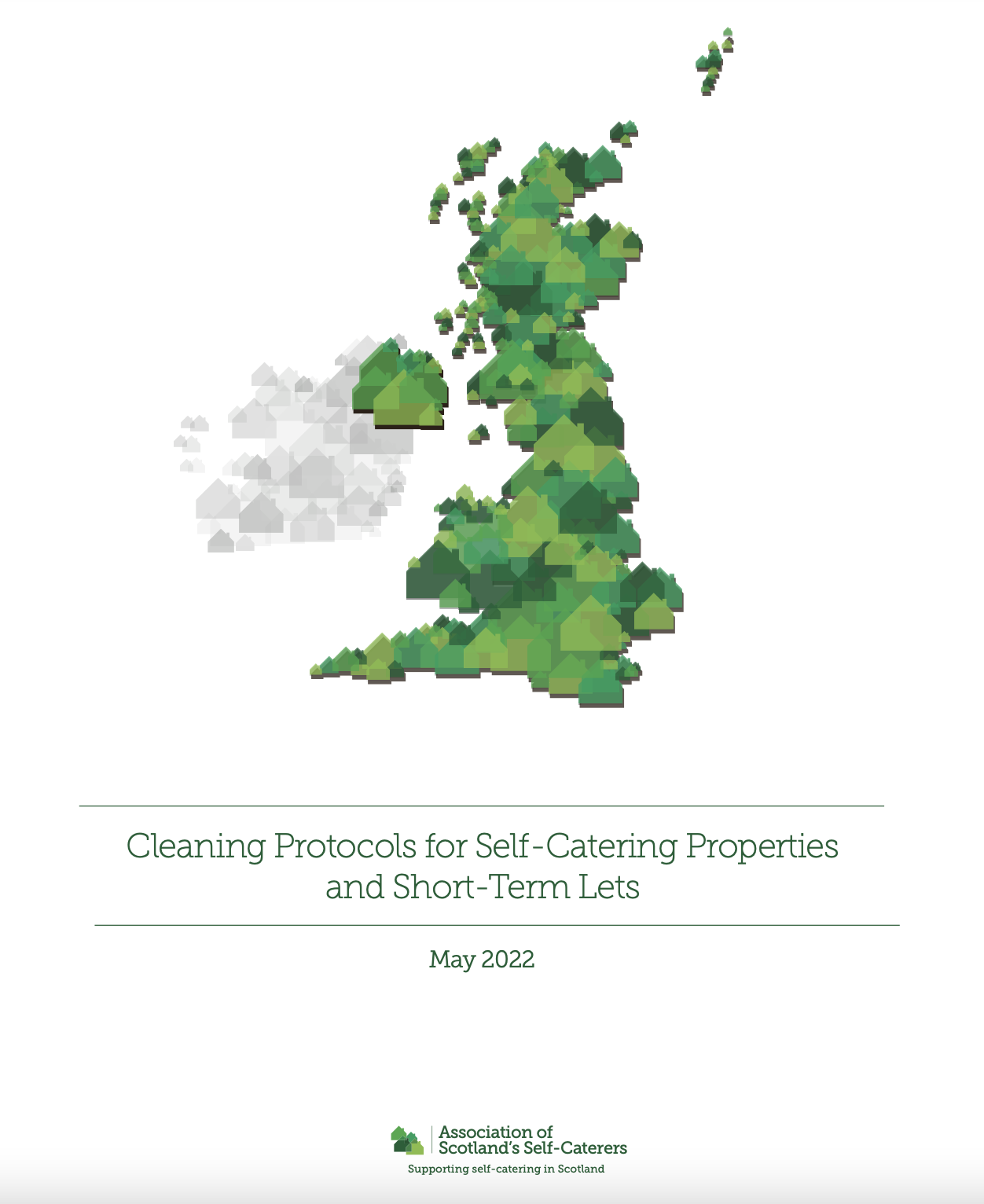PHS have had the opportunity to review the Cleaning Protocols and Sectoral Guidance for Self-Catering Properties in light of the stage we are at in the pandemic, alongside colleagues from Antimicrobial Resistance and Healthcare Associated Infection Scotland (ARHAI).
“In response to an earlier request to review these protocols (July 2021), we noted the excellent work done by ASSC in producing such thorough guidance for their members to ensure that they could restart business as safely as possible. At that time, we also advised on a number of relaxations that we felt could be made to the protocols, based on changes to government and PHS guidance, as well as the progression of the pandemic.
“We now feel that we are at a point where businesses should not simply return to pre-pandemic practices, i.e. business as usual, but should aim to build back better based on our increased awareness of good infection prevention and control practices. The pandemic has highlighted the importance of many of the mitigations that were put in place for COVID-19. These mitigations, however, have also shown to be successful in reducing the risk of other health outcomes during the pandemic and we feel that these should continue to be highlighted as best practice as we move forward.”
Advice is, therefore, to “build back better” by embedding some key principles into practices, and by referring to PHS’s COVID-19 information and guidance for workplaces and community settings.
Emphasised measures should include (but needn’t be limited to):
- Ensuring that there is a cleaning protocol in place for their properties, detailed with responsibilities assigned
- Ensuring that frequently touched surfaces and sanitary areas are cleaned regularly (where buckets of water are used for cleaning/mopping, ensuring that these are changed regularly and always after cleaning sanitary areas)
- Ensuring the use of products in line with manufacturer’s instructions
- Ensuring maximisation of ventilation of properties – also encouraging the same from guests during their stay and upon departure where safe to do so
- Encouraging good hand hygiene by staff, as well as continuing with the provision of hand hygiene products for customers
All of these measures are already highlighted within the existing protocols so should already be familiar to hosts and operators.
Cleaning Protocols
Download the Cleaning-Protocols: 2022 Cleaning Protocols V1
Download a word copy of a Risk Assessment form: Risk-Assessment 2022
Download a word copy of a Cleaning Checklist: Self-Catering-Cleaning-Checklist
If someone develops symptoms of a respiratory infection, including COVID-19, while on site
The symptoms of COVID-19 and other respiratory infections are very similar. It is not possible to tell if an individual has COVID-19, flu or another respiratory infection based on symptoms alone.
Symptoms of COVID-19, flu and common respiratory infections include:
- continuous cough
- high temperature, fever or chills
- loss of, or change in, your normal sense of taste or smell
- shortness of breath
- unexplained tiredness, lack of energy
- muscle aches or pains that are not due to exercise
- not wanting to eat or not feeling hungry
- headache that is unusual or longer lasting than usual
- sore throat, stuffy or runny nose
- diarrhoea, feeling sick or being sick
Further information is available via NHS inform.
Guests should inform you immediately if they develop symptoms of Covid-19 or any other respiratory illness while staying at your property.
While the individual is on the premises, the general measures to prevent spread should be followed. The affected person should return home as soon as they notice symptoms, following the latest NHS inform guidance.
Advice on cleaning of areas after an individual with symptoms of a respiratory infection, including COVID-19, or a positive COVID-19 test result has left a workplace or community setting is set out in Section 3.4.
If required, NHS Board Health Protection Teams can be approached for additional advice. They may also make the decision to engage in the handling of any individual cases, clusters, or outbreaks at their discretion, if they perceive a risk to public health.
In the event of an outbreak, people on the Highest Risk List should follow any individual advice they have been given by their clinician
See PHS guidance -paragraphs – 2.3 – 2.5: COVID-19 information and guidance for workplaces and community settings (publichealthscotland.scot)
Disclaimer: The content of the cleaning protocols is based on guidance from the HSE (Health and Safety Executive), WHO (World Health Organisation), European Centre for Disease Prevention and Control (ECDC), Global Biorisk Advisory Council (GBAC), and Centres for Disease Control (CDC), NIH (National Institutes of Health), NHS (National Health Service). These agencies do not endorse this content. This is guidance only, and we make no representations or warranties of any kind, express or implied, about the completeness, accuracy, reliability, suitability, or availability with respect to this content provided for any purpose. Any reliance you place on such information is therefore strictly at your own risk.


